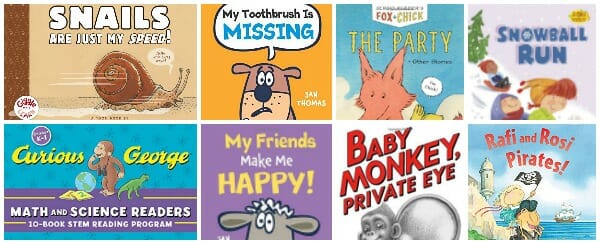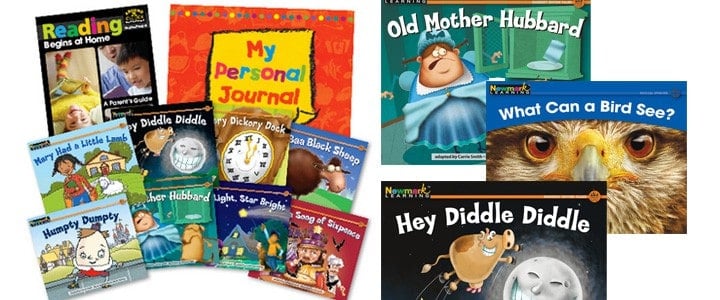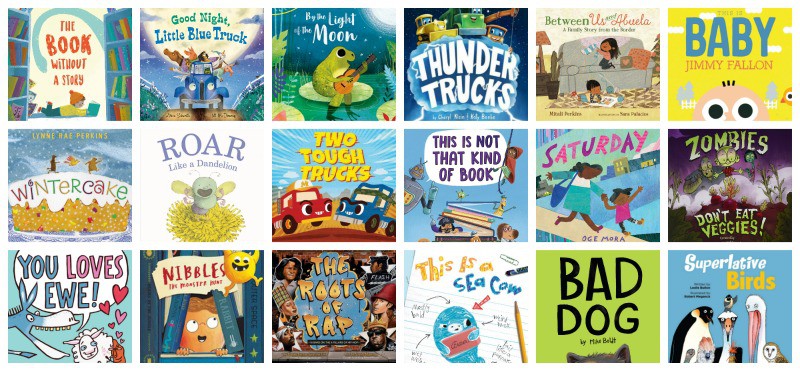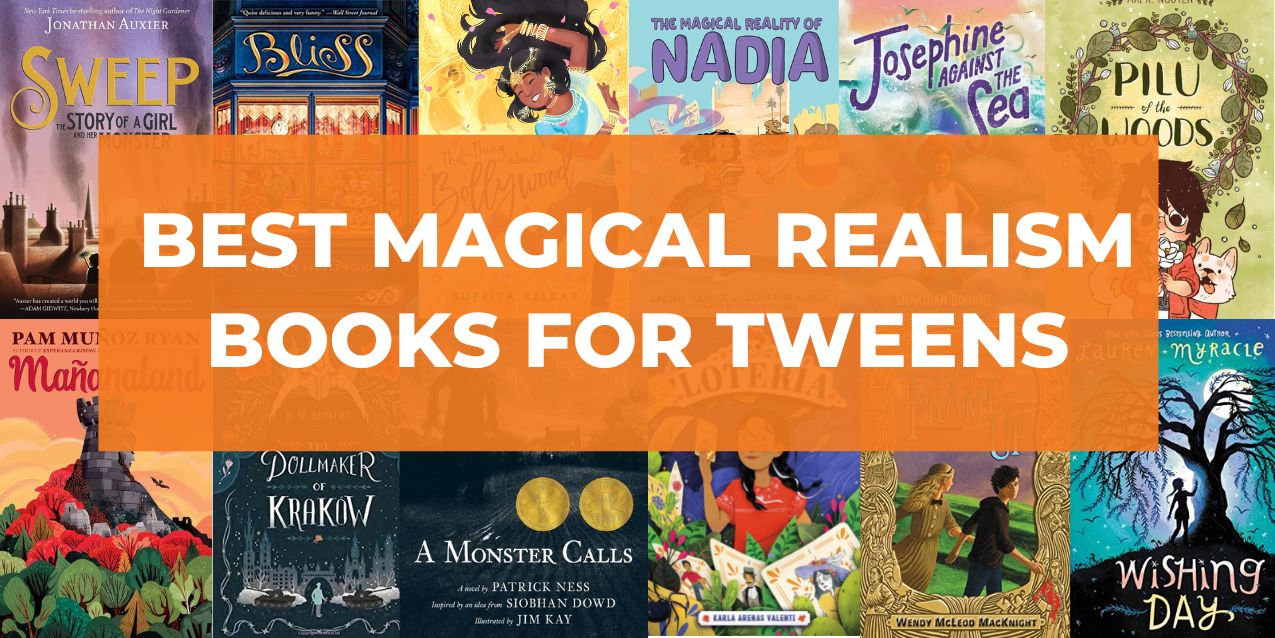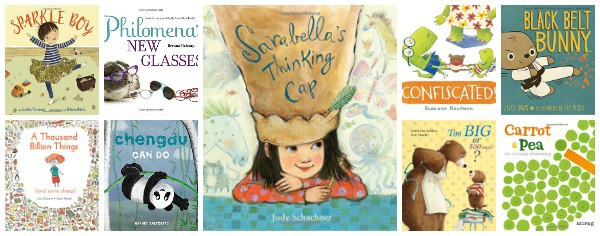10 Best Dictionaries for Kids + Free Scavenger Hunt
This post may contain affiliate links.
What are the best dictionaries for kids? if you’re looking for a dictionary, here are the best kids’ dictionaries for children in the classroom, library, or at home. (Scroll down for a scavenger hunt and dictionary activity ideas.)
These dictionaries for kids are kid-friendly nonfiction reference books that contain illustrations and definitions to help young learners learn to spell and learn new vocabulary words.
As an educator, I understand the ease of an online dictionary (like the Merriam-Webster Dictionary app or Dictionary.com), but I think that at an early age, it’s important to look up words in a physical dictionary.
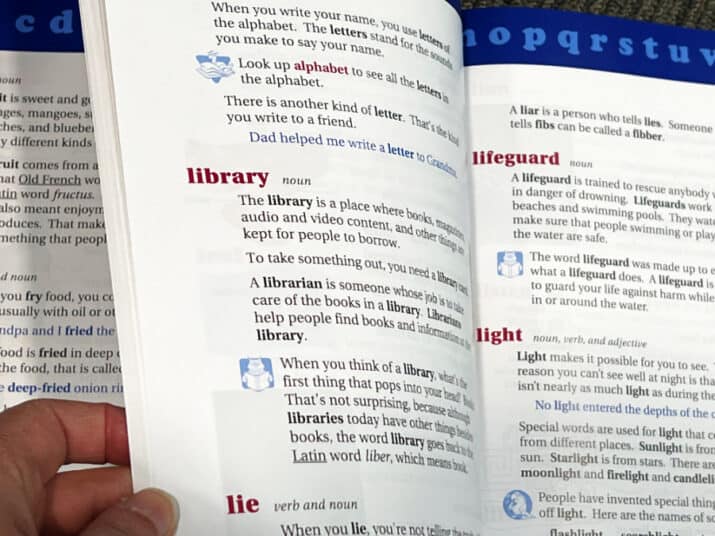
One big reason is that in a physical dictionary book, children can practice alphabetizing. They need to be able to look up words in the order of the alphabet. To best use the dictionaries, teach your kids how to alphabetize not just the first letters of the words but the second, third, and fourth letters. Then, when they have alphabetizing skills, teach them how to use the headwords at the top of the pages.
Dictionaries for kids are so fun– and not just for word nerds. It can be fun and foundational for everyone. If you believe Noam Chomsky, language gives us words for our thoughts, but we don’t have enough words. Can we conclude that the more words we know, the better we can externalize our ideas and thoughts? Something to ponder!
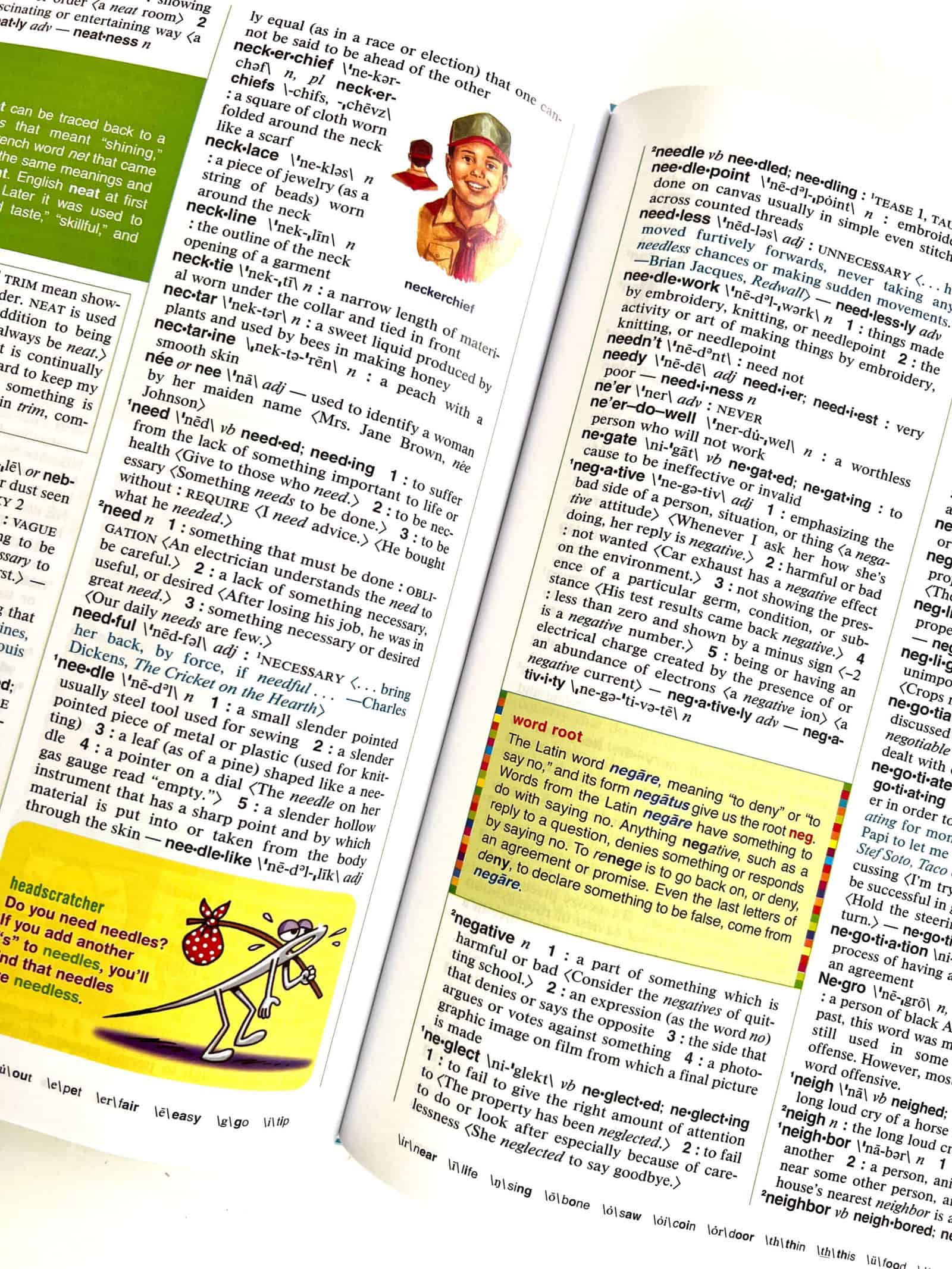
That being said, I like that the online dictionaries for kids and dictionary apps also include audio pronunciations, etymology, and related words, including antonyms and synonyms. In addition, these apps have word lists for learning new words like this one from Merriam-Webster.
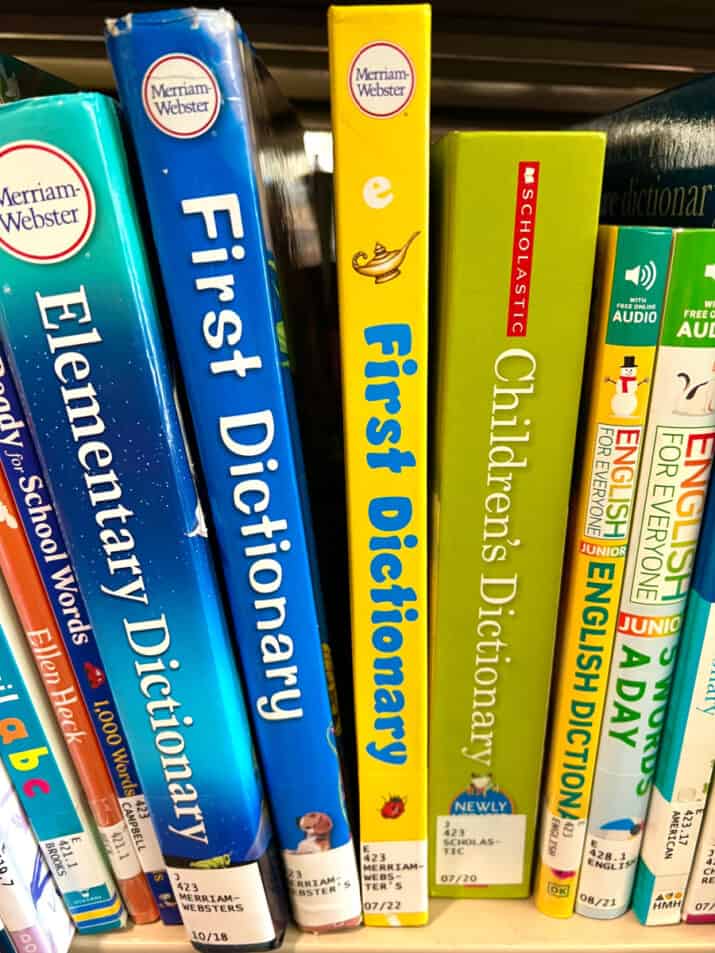
Obviously, reading the dictionary is not the way to learn vocabulary, but it is an important tool. Here are vocabulary games and activity ideas for increasing a child’s vocabulary.
Best Dictionaries for Kids
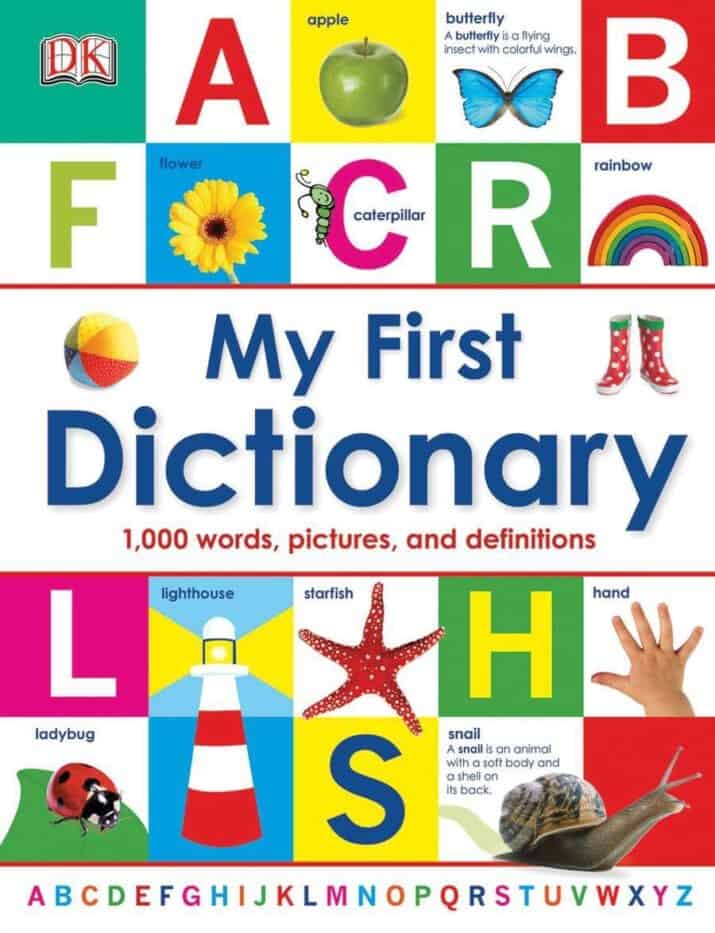 My First Dictionary
My First Dictionary
ages 5+
Each of the 1,000 words in this dictionary is accompanied by a photo or illustration with the part of speech (nouns, verbs, and adjectives). The words listed are most commonly encountered by young children and include kid-friendly definitions. This kids’ picture dictionary is best for preschoolers and early elementary ages.
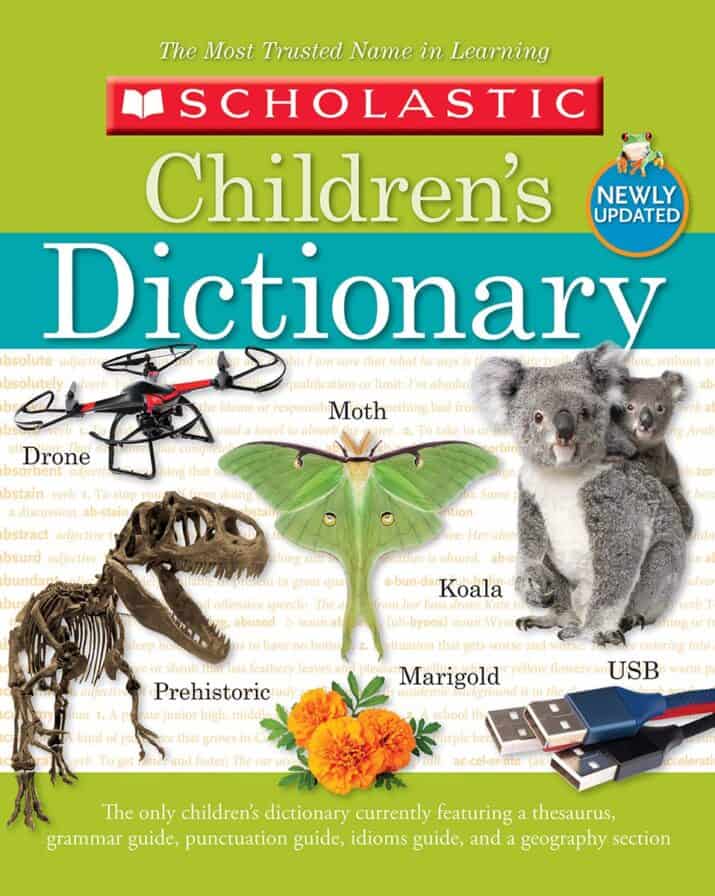
Scholastic Children’s Dictionary
ages 6+
I highly recommend this easy-to-read beginner-level dictionary with the words in red plus the parts of speech definition, a kid-friendly proper pronunciation guide, sample sentences, kid-appropriate definitions, and some illustrations. This dictionary for kids includes a thesaurus plus guides to grammar, idioms, geography, and US presidents.
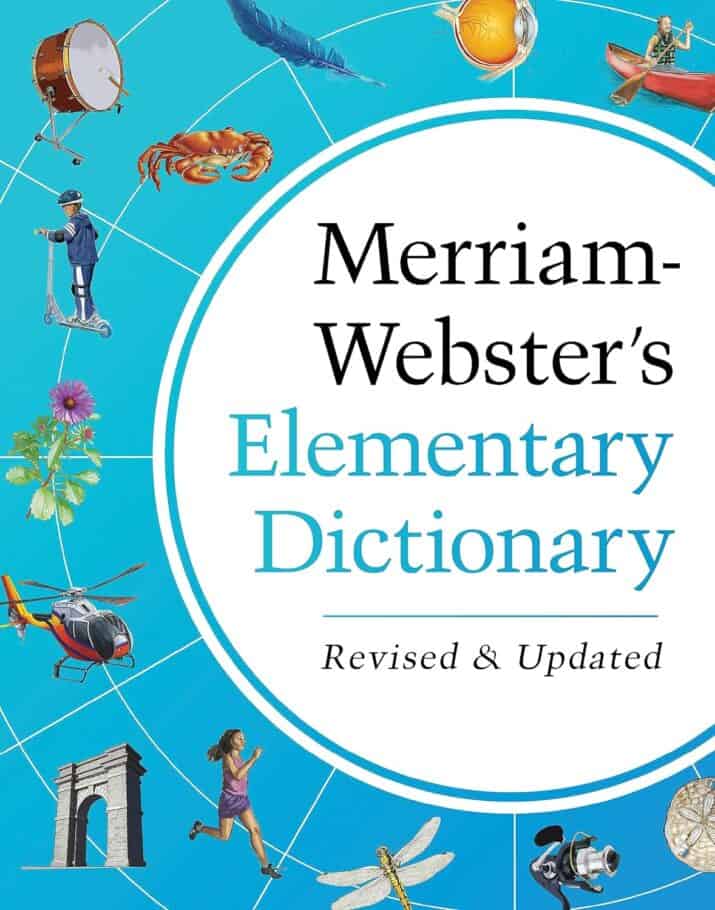
Merriam Webster’s Elementary Dictionary
ages 7+
A must-own children’s dictionary for your home and school because it’s so kid-friendly! Using a physical dictionary will help kids learn and practice alphabetizing (the practice is key). More than that, children will learn how to read dictionary definitions, learn about pronunciation and the parts of speech, and read more information about roots and specific words. For example, you can read the word history of “crocodile” or read about the word root “kritikos” which gave us the word critic. How cool is that?
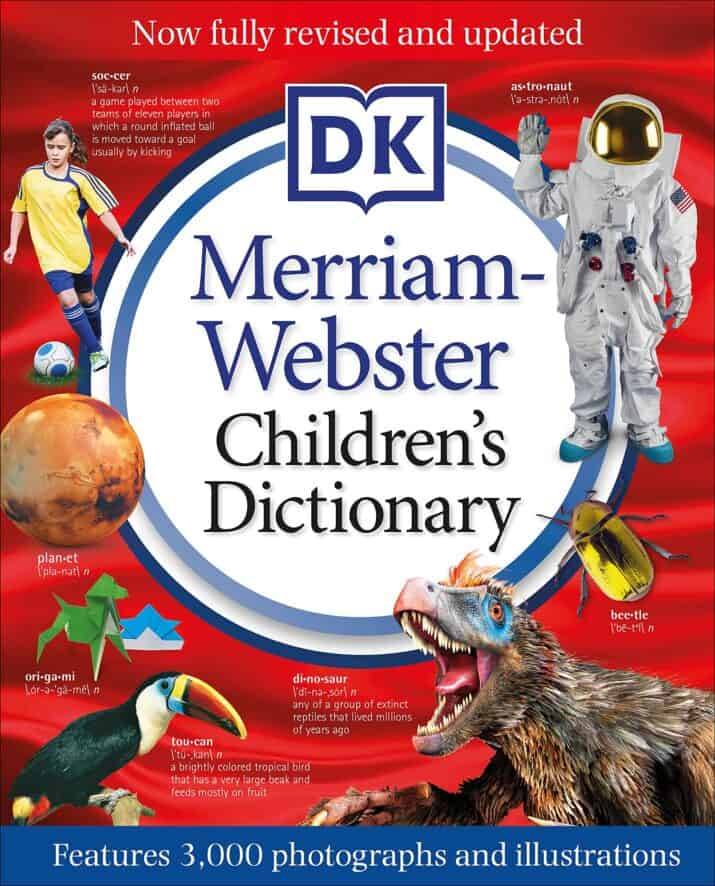
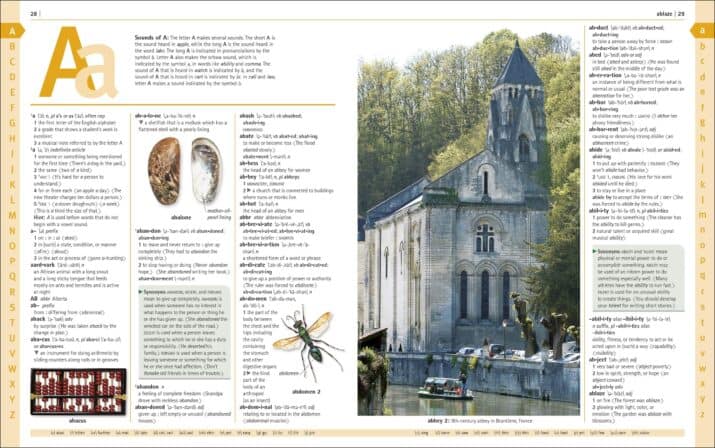 Merriam-Webster Children’s Dictionary by DK
Merriam-Webster Children’s Dictionary by DK
ages 7+
Merriam-Webster Children’s Dictionaries are my favorite reference tool. This traditional dictionary contains 35,000 words and 3,000 full-color illustrations, making it my top pick for classrooms and libraries. I also like that the borders are color-coded for each letter of the alphabet. The words include the definition, notes on spelling and punctuation, and examples.
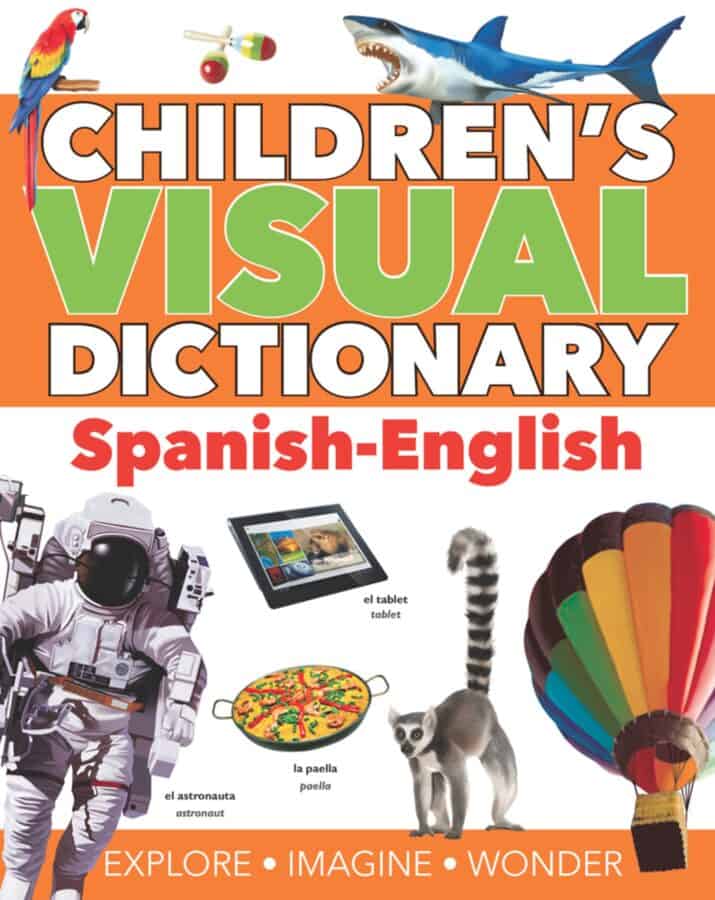 Children’s Visual Dictionary: Spanish-English
Children’s Visual Dictionary: Spanish-English
ages 6+
This is an illustrated dictionary with Spanish and English common words for kids who are learning English or learning Spanish. Grow your vocabulary with over 1000 words in two languages and a picture for each word.
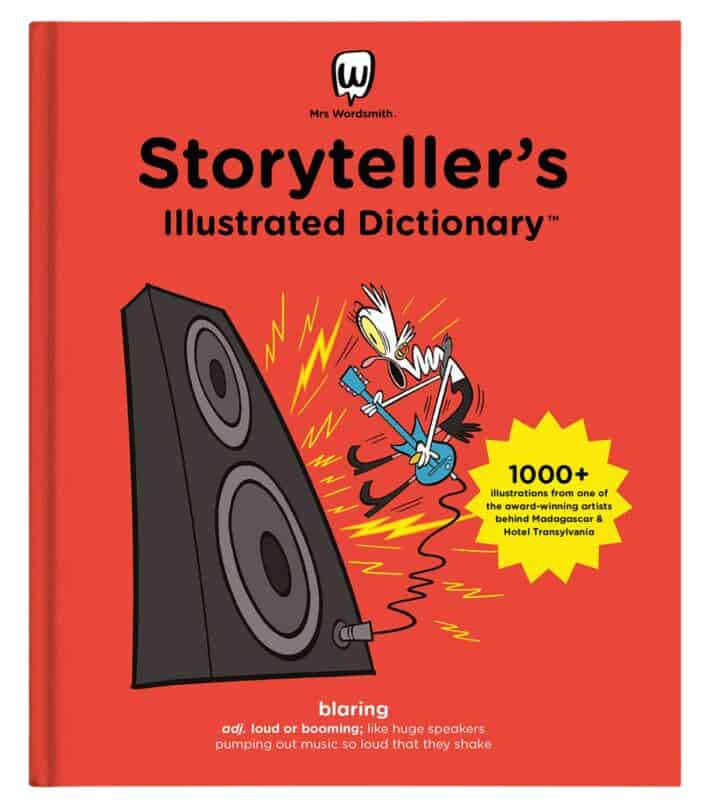 Mrs. Wordsmith’s Storyteller’s Illustrated Dictionary
Mrs. Wordsmith’s Storyteller’s Illustrated Dictionary
This deluxe illustrated storytelling dictionary gets kids jazzed about words with over 1,000 words illustrated in entertaining cartoons. It’s a great word-finding resource to help grow a child’s vocabulary and directly improve their writing skills and storytelling ideas.
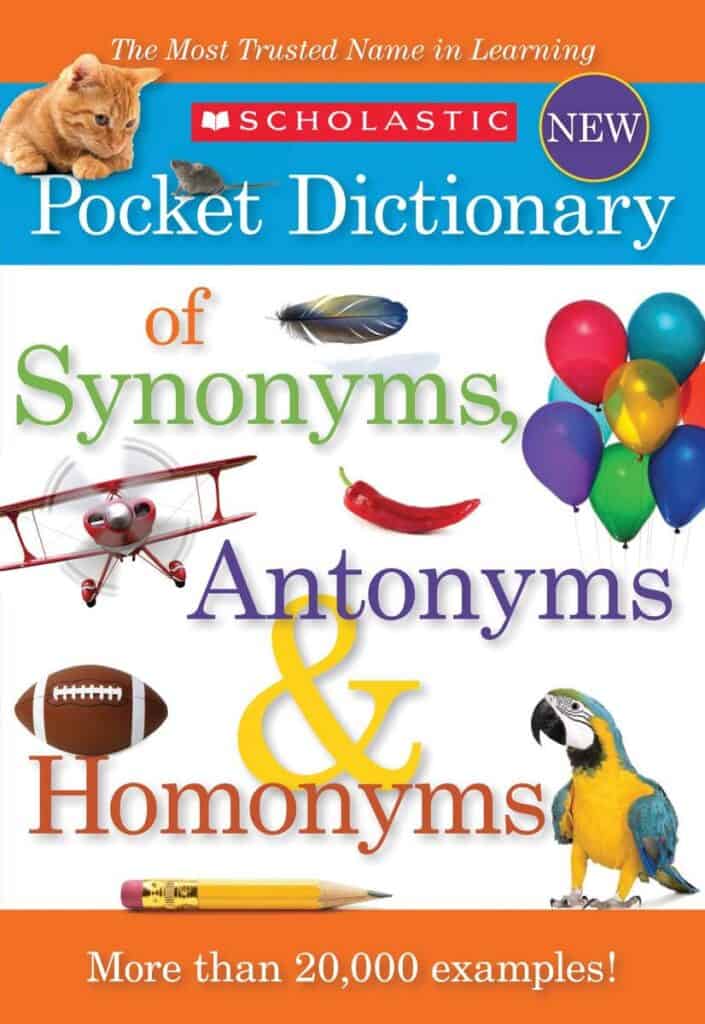 Scholastic Pocket Dictionary of Synonyms, Antonyms, & Homonyms
Scholastic Pocket Dictionary of Synonyms, Antonyms, & Homonyms
ages 8+
Designed for upper elementary and middle school students with more than 12,000 synonyms and 10,000 antonyms at their fingertips, this thesaurus book is a great reference tool. It requires some understanding of how to use it — with the antonyms in italic font after the list of synonyms.
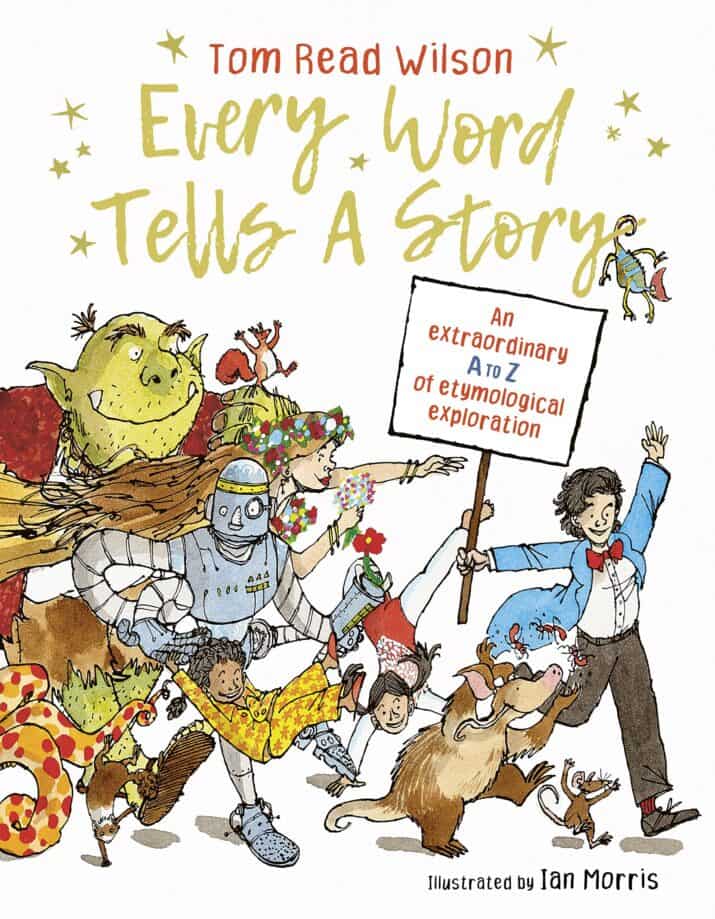
Every Word Tells a Story by Tom Read Wilson, illustrated by Ian Morris
ages 7+
Would your kids love this playful, colorful, illustrated etymology dictionary? I’m not a kid but I love it! For each letter, dive deeper into four unique words that begin with that letter. One of the words includes a featured poem, and all the words include their etymology and definitions. The book is decidedly British with words like bobby and hoover, which is a fun experience for American kids.
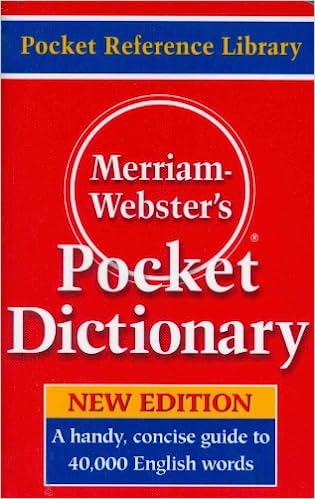 Pocket Dictionary by Merriam-Webster
Pocket Dictionary by Merriam-Webster
ages 10+
This is the best advanced children’s dictionary with words, pronunciations, and corresponding definitions is best for high school students to carry in their backpacks — but not people my age (over 50) who need reading glasses because the print is too tiny! Merriam-Webster is a classic dictionary, and if you want a bigger size, try this one. I’d recommend this pocket dictionary for kids in middle school and high school.
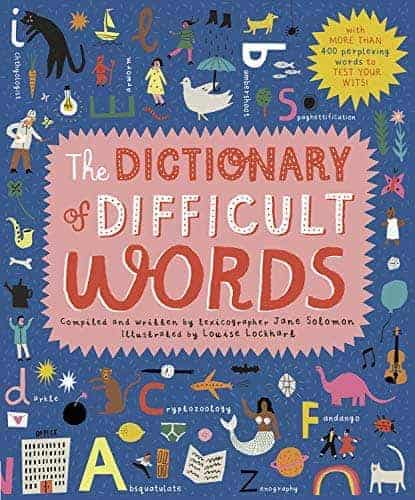
The Dictionary of Difficult Words by Jane Solomon, illustrated by Louise Lockhart
Want a mesmerizing wordplay book that is even better than a word-a-day calendar? This oversized dictionary contains an incredible selection of 400 words starting with abecedarian (someone who is learning the alphabet) and continuing to Zeppelin. Learn 15 new words for each letter.
Every word includes the pronunciation, part of speech, and definition. You’ll find words like haberdashery, ichthyologist, luddite and mugwump, mulligrubs, mumpsimus, and mishpocha. Read one of these words (or more) every day. Then try to use it at least a few times in a sentence. It won’t be too onerous, and you won’t be ramfeezled; learning new words might just be a salubrious experience because you’ll soon become a sesquipedalian.
Dictionary Activities for Kids
Now that you’ve chosen the best dictionaries for kids, how do you help your kids or students learn about them? Here are a few activities that will teach and reinforce dictionary skills.
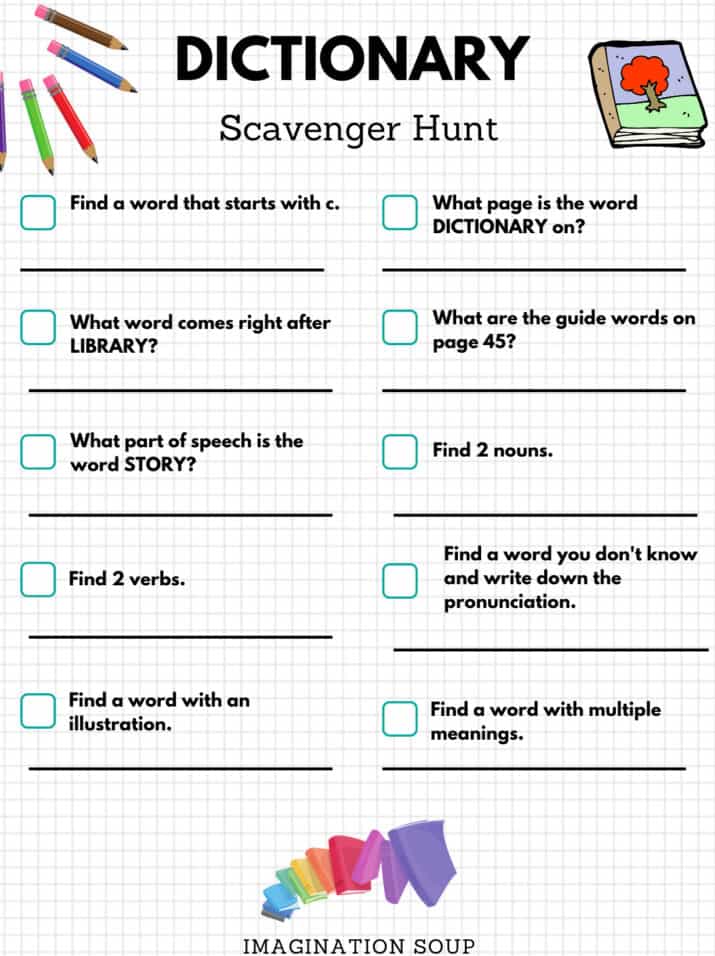
- Dictionary Vocabulary Words
Teach kids important terms such as GUIDE WORDS, ENTRY WORD, ALPHABETICAL, PRONUNCIATION, PART OF SPEECH, DEFINITION, ABBREVIATION, SYNONYMS, and ANTONYMS. Teachers Pay Teachers has many resources and activities from educators to teach these terms. - Dictionary Scavenger Hunt
Practice finding words with a scavenger hunt. Invent your own or try my free printable download. You can have dictionary races to find a favorite word on page 20. Or find a word that begins with “pr.” Or find the parts of speech for the word “read.”
Kids Dictionary Online
While I don’t recommend this for readers who are learning to alphabetize, spell, write, and read, I don’t mind too much for children who are adept at the aforementioned literacy skills. So if you want a kids dictionary online, you might try these choices.
- Merriam-Webster Student Dictionary Online (the industry standard and my favorite)
- Britannica
- Dictionary.com
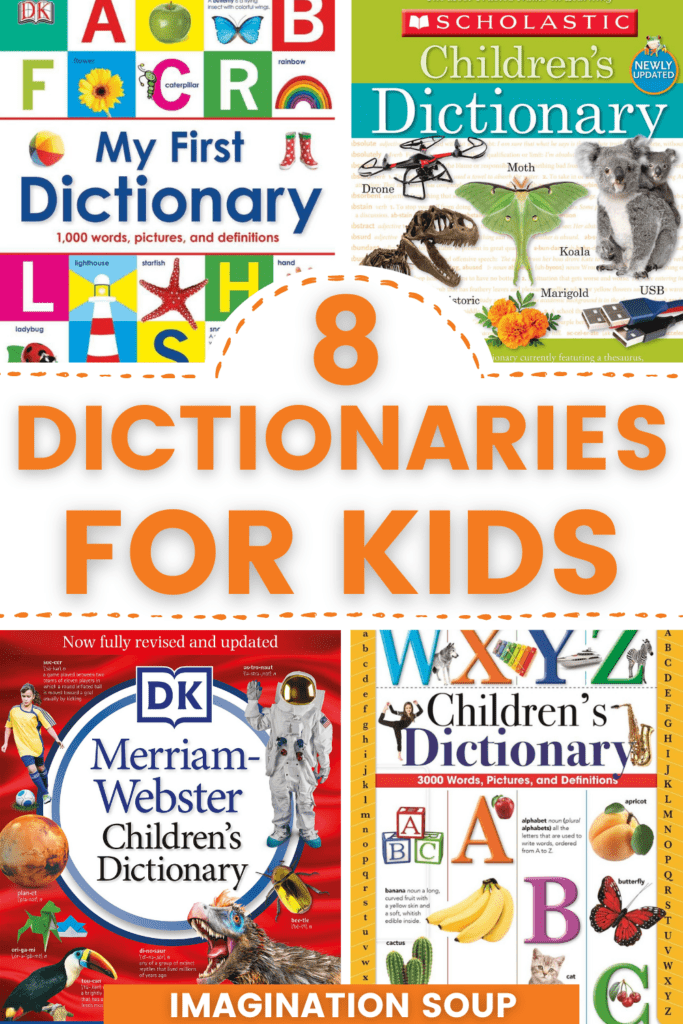
KEEP READING

